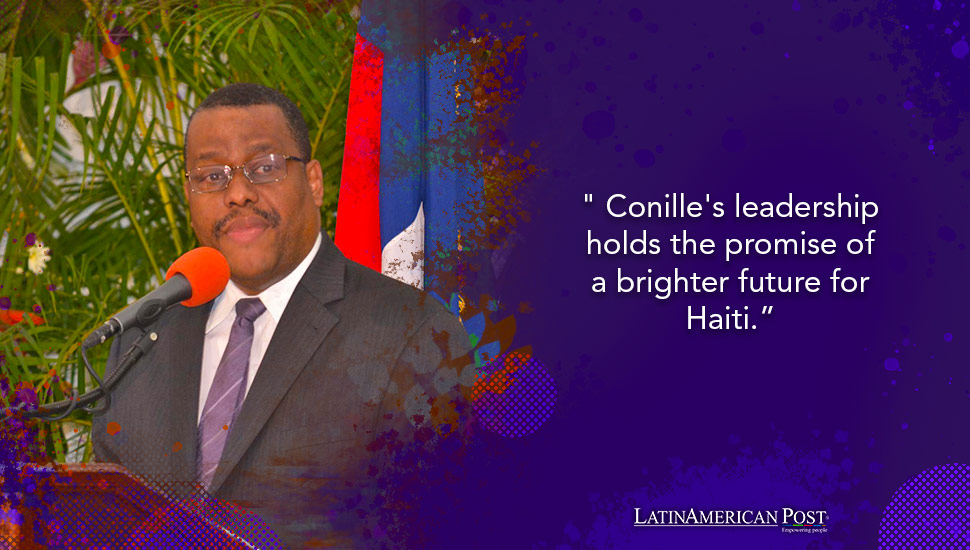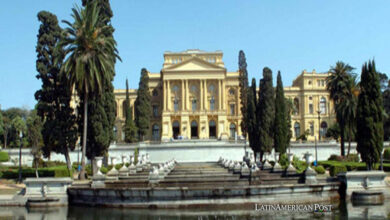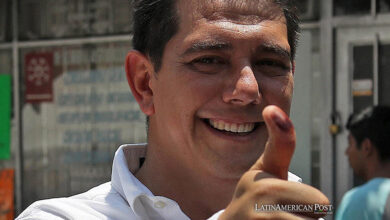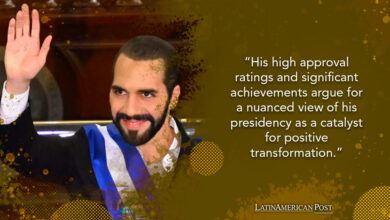Garry Conille’s Return to Haitian Leadership Amid Transitional Hopes

Garry Conille’s return to the helm of Haiti’s political landscape as interim Prime Minister is a beacon of hope, guiding the nation through a pivotal transition period. With his robust international development and public health background, Conille’s leadership holds the promise of a brighter future for Haiti.
Garry Conille, a seasoned politician and medical doctor, was appointed interim Prime Minister of Haiti by the Presidential Transition Council this Tuesday. This marks his second tenure, having served officially from 2011 to 2012 during Michel Martelly’s presidency. Conille’s reappointment occurs amidst a critical period for Haiti grappling with significant political, social, and economic challenges.
Conille’s academic credentials are noteworthy. He graduated from the State University of Haiti (UEH) and holds a Master’s in Public Health from the University of North Carolina in the United States. Since January 2023, Conille has been the Regional Director for Latin America and the Caribbean at the United Nations Children’s Fund (UNICEF), showcasing his extensive experience in international development and humanitarian efforts.
Before his role at UNICEF, Conille served as the Resident Coordinator for the United Nations in countries such as Burundi and Jamaica. His two-decade career in development spans several critical positions within non-governmental organizations and the United Nations, emphasizing his commitment to global health and socio-economic development.
Conille began his UN career in Haiti with the United Nations Population Fund (UNFPA) in 1999. Between 2008 and 2010, he was the Head of the Millennium Development Goals Support Unit at the United Nations Development Programme (UNDP). Following the catastrophic earthquake in January 2010 that claimed over 200,000 lives in Haiti, Conille played a pivotal role as Chief of Staff to the United Nations Special Envoy for Haiti, coordinating reconstruction efforts during a time of profound national crisis.
His tenure as Haiti’s Prime Minister from 2011 to 2012 saw him navigate the complexities of post-earthquake recovery and political instability. After resigning from the Prime Ministerial post, Conille became the Senior Advisor to Liberia’s then-President Ellen Johnson Sirleaf, further cementing his reputation as a seasoned diplomat and development expert.
Fluent in French, English, and Haitian Creole, Conille is married and the father of twin daughters. His multicultural fluency and familial grounding enhance his ability to effectively connect with diverse populations and lead.
This week’s appointment, backed by six of the seven members of the Presidential Transition Council, reflects a strong consensus for his leadership. The Council began its work a month ago, and Conille’s selection as interim Prime Minister follows the resignation of Ariel Henry and the brief interim leadership of Michel Patrick Boisvert, former Minister of Economy.
Historical Context and Challenges
Haiti’s political history is marked by a series of turbulent transitions and intermittent instability. The nation, the first independent black republic, won its freedom from France in 1804 after a prolonged and bloody revolution. Since then, Haiti has grappled with numerous challenges, including foreign interventions, dictatorships, and natural disasters, painting a picture of resilience in the face of adversity.
The devastating earthquake of January 2010 brought international attention and aid but also highlighted the fragile state of Haiti’s infrastructure and governance. Efforts to rebuild the country have been ongoing but have often been hampered by political instability and corruption. Conille’s initial tenure as Prime Minister was amidst this recovery phase, where he had to balance immediate relief efforts with long-term development goals.
Haiti’s history and current affairs are deeply intertwined with the broader Latin American and Caribbean context. The region has seen waves of political change, economic challenges, and social movements that often resonate across borders. Haiti’s struggles with poverty, governance, and natural disasters are mirrored in various forms throughout Latin America.
Conille’s role within UNICEF for Latin America and the Caribbean highlights the interconnectedness of these issues. His work has addressed child welfare, public health, and educational disparities, which are critical issues in Haiti and across the region. His experience in countries like Burundi and Jamaica underscores his capability to handle complex development challenges in diverse settings.
Future Prospects and Expectations
The reappointment of Garry Conille as Haiti’s interim Prime Minister is met with significant expectations. The Transitional Council and the broader Haitian populace are hopeful that his leadership will bring stability and progress. His extensive development and international cooperation background position him well to navigate Haiti’s current crisis and lay the groundwork for sustainable development, but the road ahead is not without its challenges.
One of the immediate challenges Conille faces is ensuring a peaceful and transparent transition of power. Haiti’s political landscape is fraught with factionalism and public distrust. Effective communication and engagement with both national stakeholders and international partners will be crucial. Additionally, addressing the socio-economic impacts of ongoing crises, including the aftermath of natural disasters and the COVID-19 pandemic, will be paramount.
Conille’s tenure at UNICEF has provided him with insights into the needs and challenges of children and families in the region, which will be invaluable as he seeks to implement policies that support Haiti’s most vulnerable populations. His ability to leverage international support and coordinate aid efforts will be critical.
Also read: Hunger in Haiti Reaches Record Levels
Garry Conille’s return to Haiti’s highest office of government is a significant moment for the nation. His extensive experience in international development and his previous tenure as Prime Minister provide a foundation of expertise and familiarity with Haiti’s unique challenges. The Haitian people and the international community will closely watch his efforts to lead the country through this transitional period, hoping for stability, progress, and a brighter future for Haiti.
This appointment is not just a political maneuver but a beacon of hope for a nation that has endured tremendous hardships. Conille’s leadership could steer Haiti towards a path of recovery and sustainable development, reinforcing the resilience and spirit of the Haitian people.





